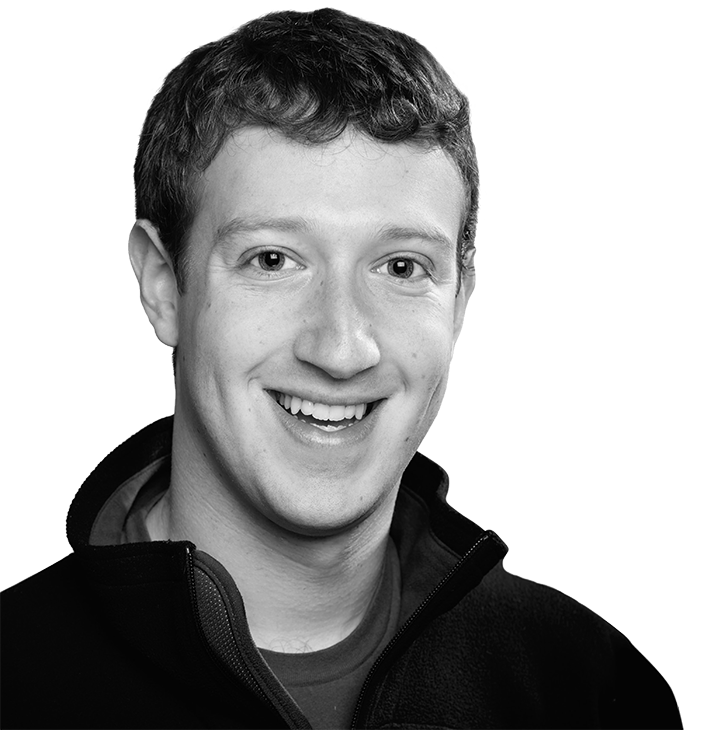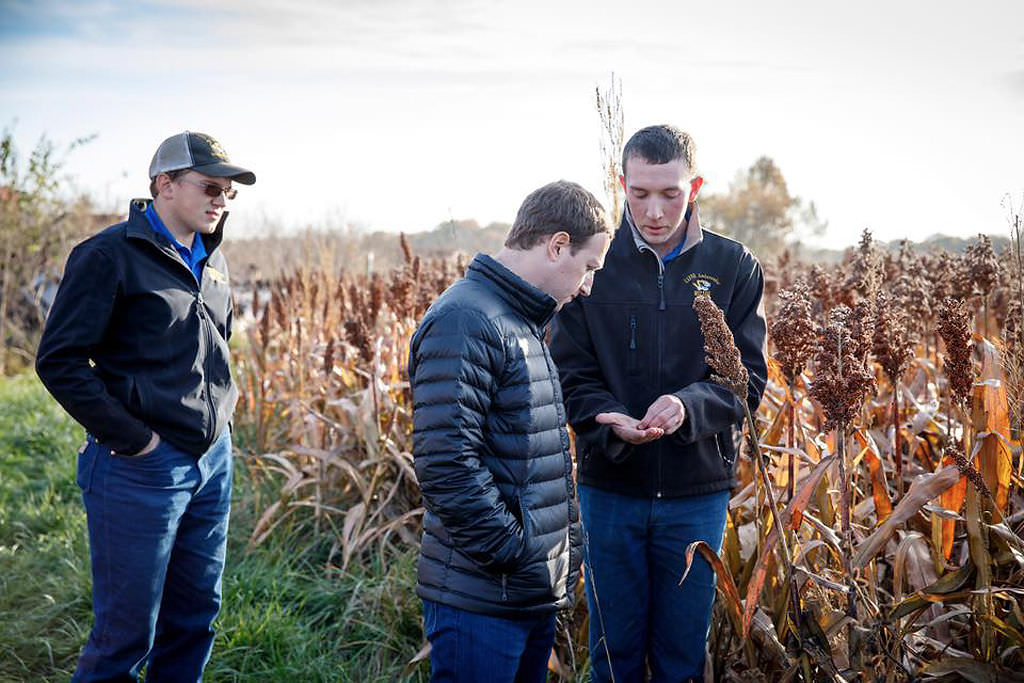
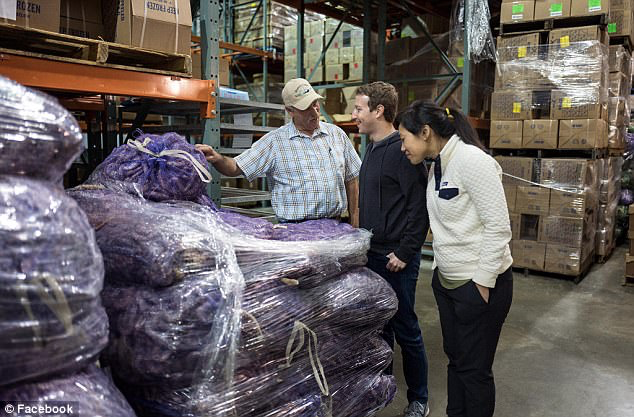
Mark Zuckerberg Looking at Things



In mid-and-late 2017 Mark Zuckerberg, CEO of repentant data hoover Facebook, went on a tour of the United States. Shocked at the turn of political events of 2016–and yet sure of Facebook’s lack of a material role in those events–Zuck thought he needed a sense of the people his company aims to connect.
On January 3rd, 2017 Zuckerberg posted this on Facebook:
My personal challenge for 2017 is to have visited and met people in every state in the US by the end of the year. I've spent significant time in many states already, so I'll need to travel to about 30 states this year to complete this challenge. After a tumultuous last year, my hope for this challenge is to get out and talk to more people about how they're living, working and thinking about the future.
[…]
Going into this challenge, it seems we are at a turning point in history. For decades, technology and globalization have made us more productive and connected. This has created many benefits, but for a lot of people it has also made life more challenging. This has contributed to a greater sense of division than I have felt in my lifetime. We need to find a way to change the game so it works for everyone.[1]
At the time, said tour was thought to betray Mark Zuckerberg’s political ambitions, and his potential run for president.Since then it has become clear those ambitions are non-existent (or distant enough to be effectively so), and that Mark’s political sense isn’t much to stump between whistle-stops about. Buzzfeed, in fact, reported that Zuckerberg’s tour impacted his public image negatively.[2] And in the wake of the recent Cambridge Analytica ~situation~ the man’s interactions with various political bodies have perhaps, finally, put to rest the idea that he would want, or be suited for, a life in government.
But in its midst, Zuck’s 2017 US tour rang as a kind of bellwether for a flock of aspirations regarding American statesmanship. That excursion’s media output emboldened said scuttlebutt all the more. Most notable of that output: a set of images. It is these images, their apparent meaningfulness, how they came to possess that meaningfulness, and their attendant context that we take as our focus in this modest consideration. To familiarize ourselves, a small, yet representative, selection:

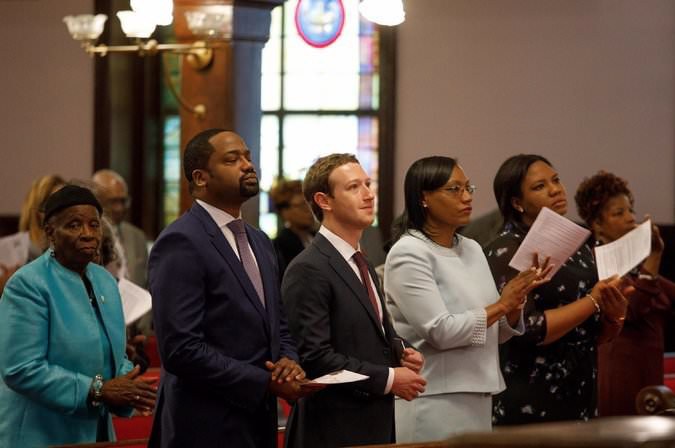
There is, to the eyes of many, an undeniably politician-like quality to Mark’s appearance here. It is perhaps no wonder these photos were shot by Charles Ommanney, once photographer to George W. Bush and Barack Obama during their presidential campaigns.[3] Of course, Ommanney is not the originator, or sole producer, of this sort of image, so let us discuss the style of the Political Photo Op generally, before confronting Zuckerberg specifically.

The job of the political actor is to advocate for their constituents. It is to manage the balance and distribution of power such that those constituents are awarded the resources they need, and are saved the burdens they cannot shoulder (or at least, it has been thought to be this; the concept is in something of a shift). The fundamental tension of the representative acting on a national, and not local, level is that they are often removed from the people they represent. The hope is that their upbringing has instilled such a sense of some place’s value system that they’d never abandon those values in the churn of Politics™.
Nonetheless the requirements of lawmaking do frequently draw those who practice it away from those they serve (this is to say nothing of the umpteen political siren songs attempting to draw one into the rocky coast of statecraft’s various side hustles). The statesman is left in a difficult position: needing to evince an expertise with the concerns of their covey in service of professional processes which make said expertise challenging to nurture.
One method for evincing such an expertise is the Candid Campaign Photo Op, or the CCPO. One segment of a broad strategy comprising Campaign Advertising, the CCPO is a visual suggestion that its subject remains in touch with the rabble, possesses some knowledge of what it’s really like out there. Metonymic CCPOs involve shaking hands and kissing babies but the situations captured run the gamut. Looking at Presidential CCPOs a broad–yet specific–range is depicted.
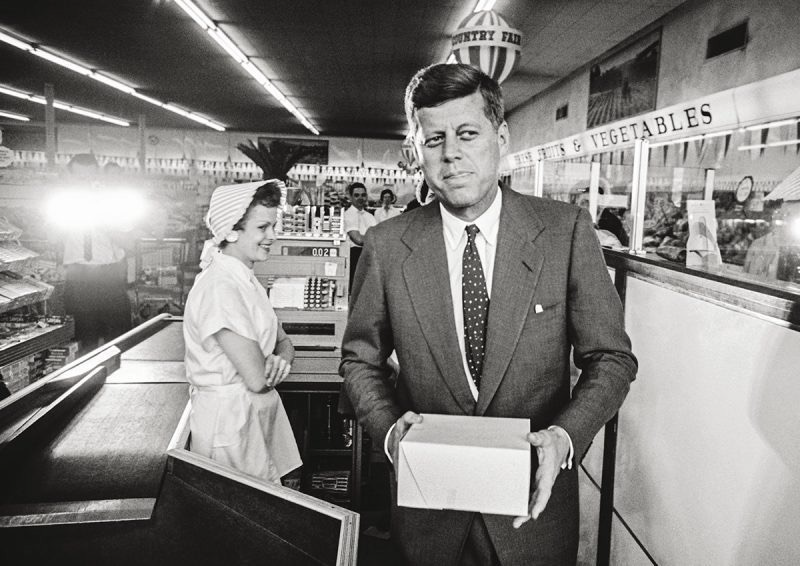
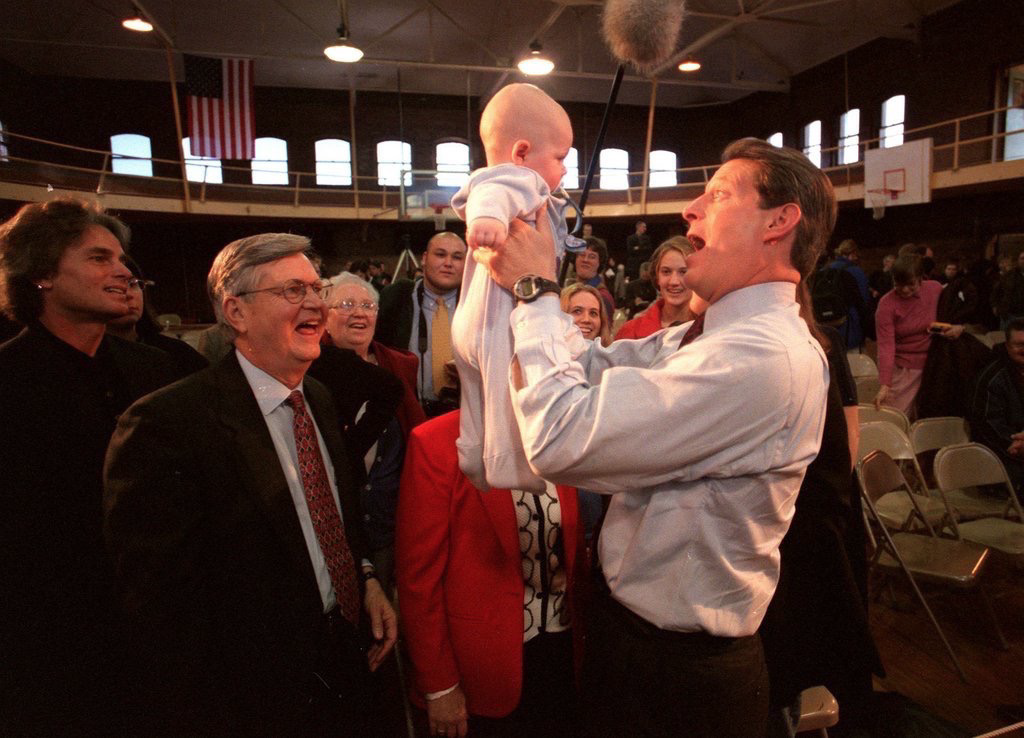
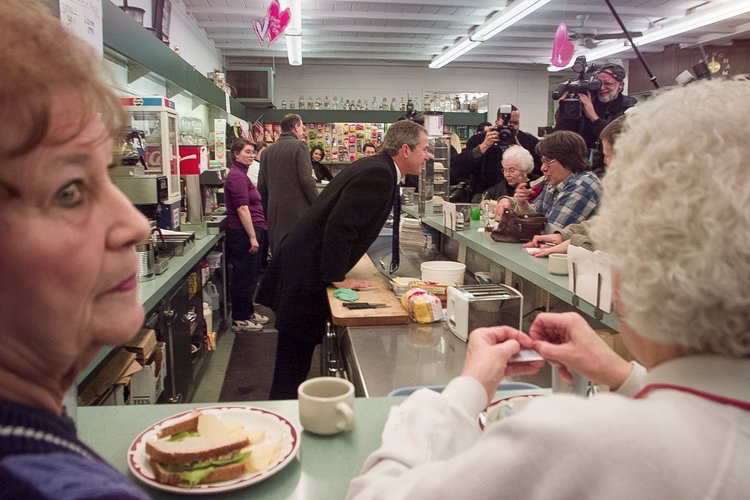
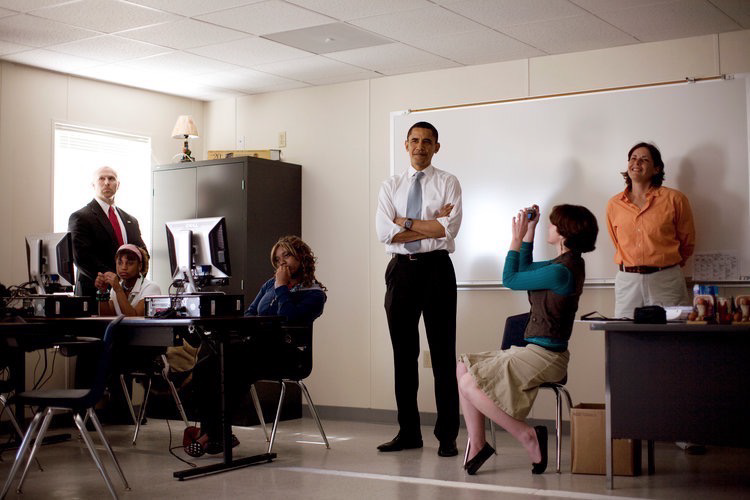
You may rightly question whether these photos are “candid”, and not “the result of some gargantuan, carefully, and expertly run operation designed to create–among other things–photographable situations which appear un-staged”. The “Candid” of CCPO behaves like the “Reality” of Reality TV or the “Within Reach” of Design Within Reach: it is less of an accurate description, and more of a genre designation.
So but then - what are the elements which comprise the CCPO “genre”? What features in these photos, uniting them and giving them political significance? Well - we see, usually, a powerful white man in public. He communicates with constituents. These images are set to evoke service (food banks, kitchens, shelters, schools, churches, military bases), good clean fun (BBQs, bowling alleys, baseball games, burger joints), or Good Old Fashioned American Labor (farms, factories, Mom n Pop shops, semi-trucks, mills, Wal•Mart).
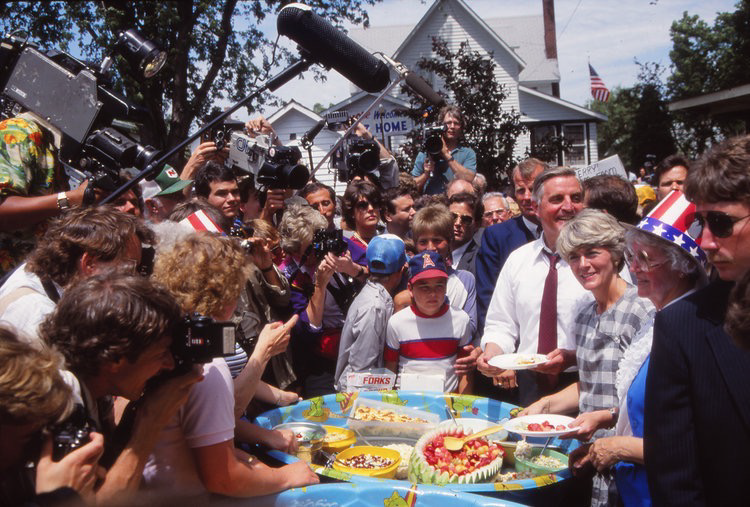
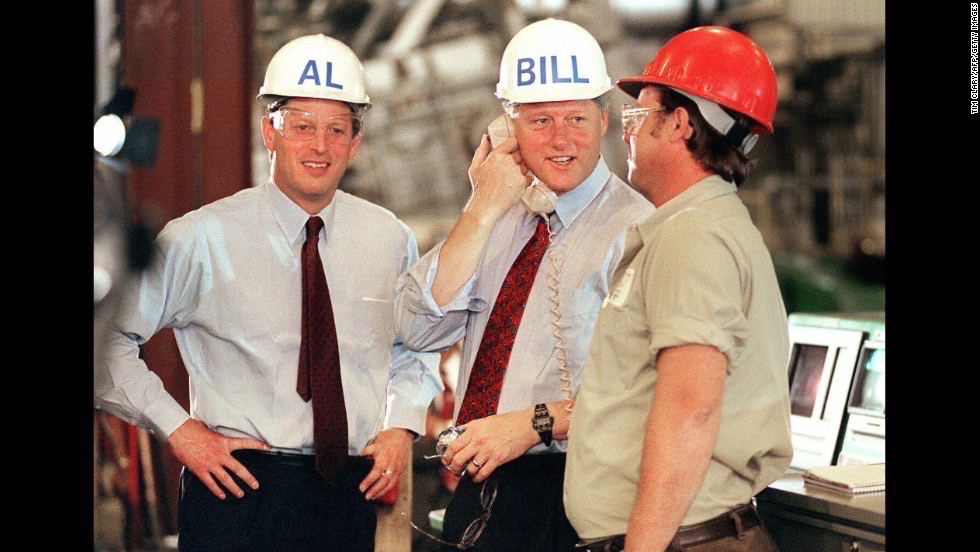
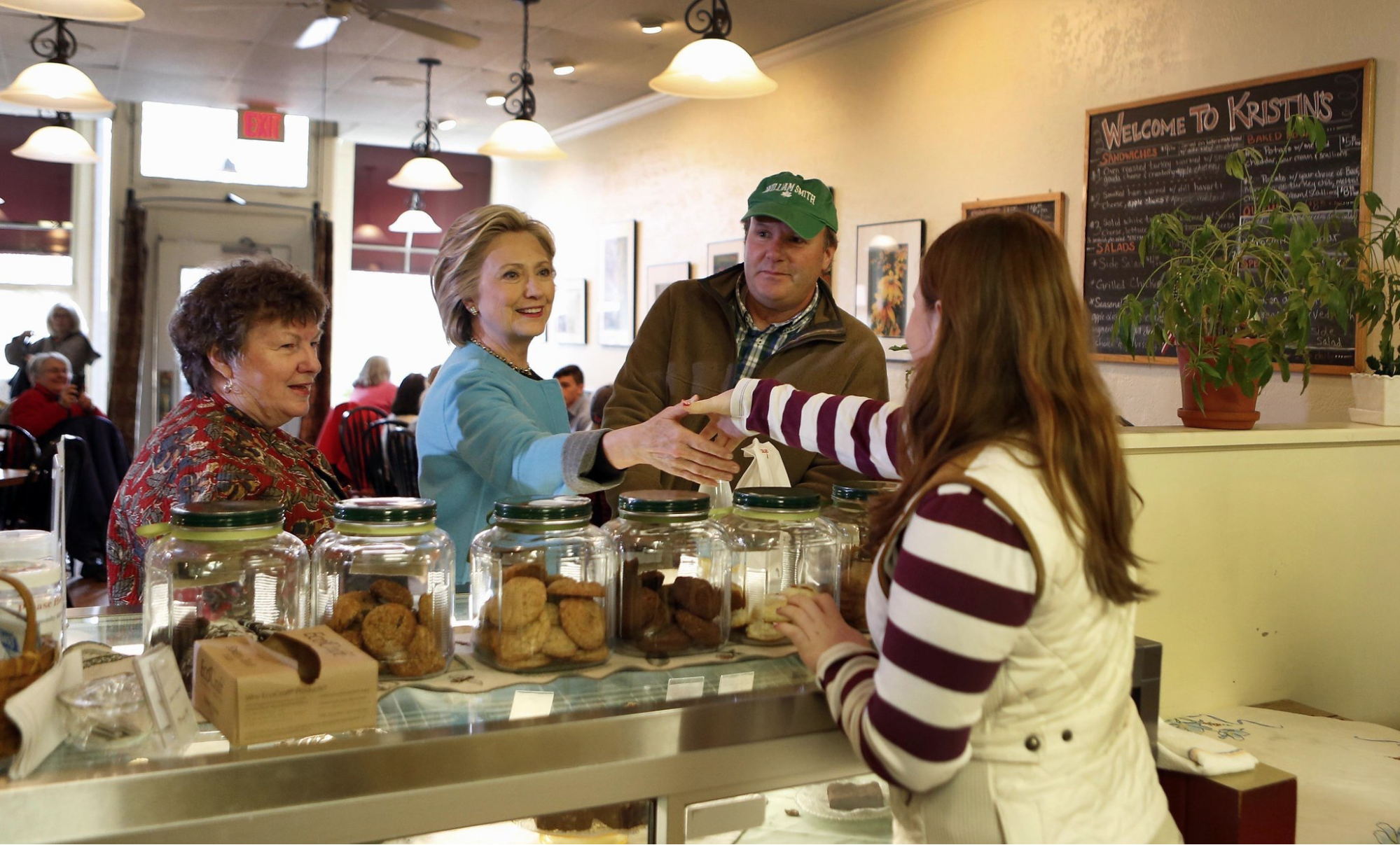
There is a very small number of professions requiring practitioners to convey (or perform) a familiarity with local concerns on a national level. Which is to say: it is not only that your local dentist would be unlikely to stage a public school photo-op, but if they were it is even more unlikely the images would be distributed by CNN. Unless they were running for office. The scale of the photos’ distribution is also one of the genre’s defining characteristics; it is not just that the politician is engaged in these activities, and not just that there is photographic evidence, but that said evidence is widely circulated for coast-to-coast consumption, far beyond the bounds of a particular locality.
We may claim, I think, that a president is made in images. It is not the case that a candidate must be an accomplished politician or civil servant or policy thinker, but rather, they must appear so, in some way or another. The power of these images is that, when they are created and deployed in just such a way, they need not reflect a candidates qualifications, but can act as a replacement for them. And the reverse is also true: a candidate who possesses skill, but no library of images depicting it, will find themselves at a disadvantage.
The imagification of Presidential Capability (as in, its construction via manifold images – not the existence of images as a result of its presence) has intensified in the modern era. Zuck’s apocryphal run, and the images thought to suggest or ‘prove’ its existence, are notable artifacts of this era, this intensity.
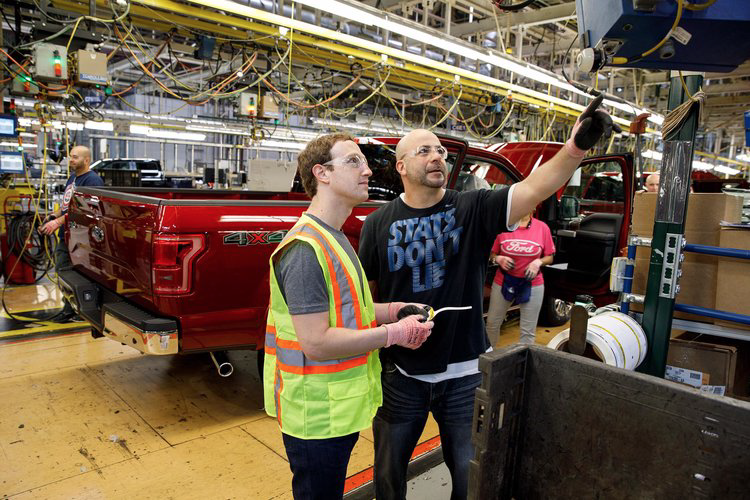
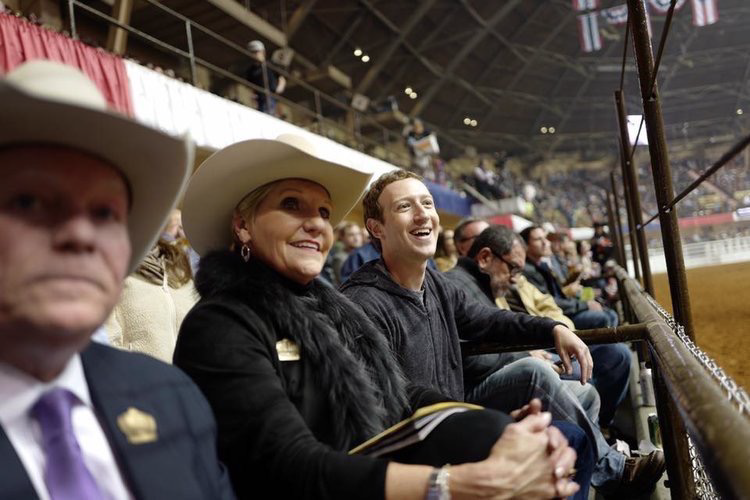
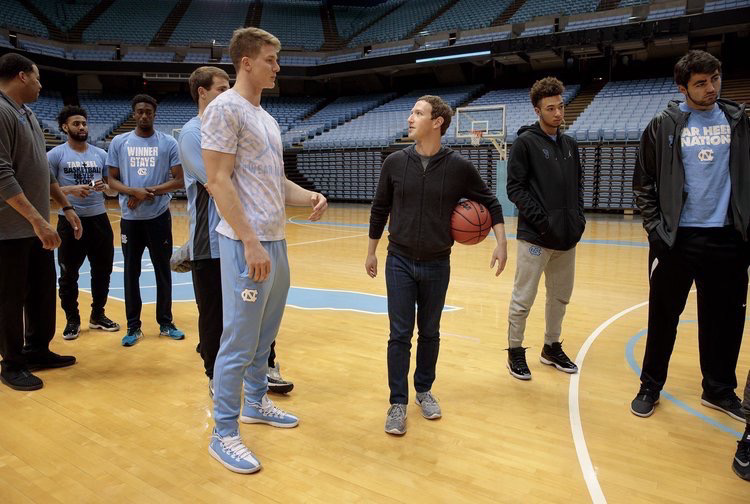
Having looked now at the CCPO as genre, it is no wonder that Zuckertour’s photographic output drew speculation. These images depict:
Zuck clearly refuted that this challenge and the media surrounding it suggest any political-anything. On Facebook, he wrote:
Some of you have asked if this challenge means I'm running for public office. I'm not. I'm doing it to get a broader perspective to make sure we're best serving our community of almost 2 billion people at Facebook and doing the best work to promote equal opportunity at the Chan Zuckerberg Initiative.[4]
Nonetheless, the suspicion persisted - emboldened by these photos. In response to this very claim that public office was not an aim of his, Business Insider collected Mark's “most presidential photos” anyway - listifying images of him clearing brush with high schoolers, meeting with local police, and attending a rodeo. He is shown holding “round tables”, paying “somber visits”, and getting “hands on looks”.[5] Via BI, The New York Times, Vanity Fair and other news outlets, we are invited to appreciate Mark Zuckerberg's appreciation of the people of The United States of America. But what exactly it all has to do with being Facebook’s CEO–and if it has nothing to do, why you’d hire a professional photographer to cover it–is unclear at best. So meaning rushes in to fill the vacuum.
In closer examination, though, for every note of Zuck's photo diary which harmonizes with the CCPO genre, there is some sour, distant partial. Considering the Zuckerberg Photo Ops carefully, we notice how they sit within some Uncanny Valley of CCPO Images. For instance, the earnest Candid Campaign Photo is never absent the larger campaign machine. This chord is missing its fundamental: the various media appearances and artifacts which build narrative, and guide potential supporters to the meaningful action required for sustaining political ambitions.
We also rarely see Zuck engaged in his surroundings. We see him at attention, but only occasionally in action. Being in action is a notable aspect of many “traditional” CCPOs: we see candidates in settings which evoke a sense of having-done, or about-to-do instead of (or in addition to) having-seen or having-listened. It is not a spectator’s familiarity that many CCPOs are meant to communicate – the idea that the subject has seen what is the case, and so understands it – but the participant’s familiarity, one which comes with having-done, in addition to having-seen. It is not enough to visit the soup kitchen; one must serve soup. While such action is not wholly absent from the tour photo series, doing is far under-depicted in comparison to listening, seeing.
In this way, Zuckerberg's tour photos subtly conjure the set of photos documenting late North Korean dictator Kim Jong Il’s relationship to industry, and North Korea's beleaguered citizens. These photos were most famously collected in the tumblr blog Kim Jong Il Looking At Things:
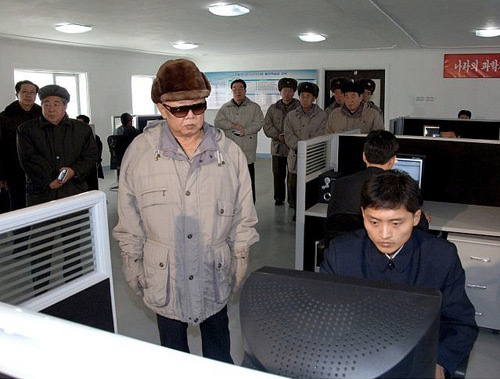
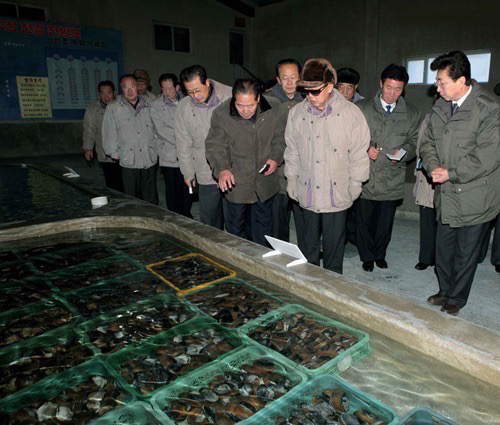
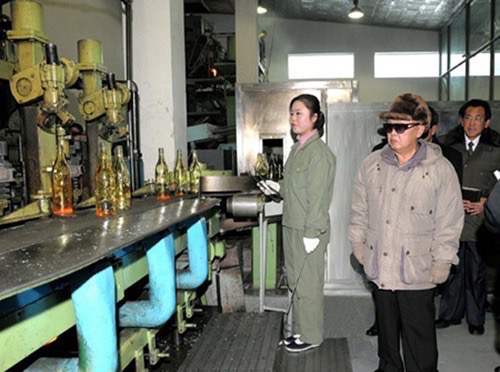
These images depict a powerful man engaged in countless acts of spectatorship. We see a man who knows it is important to be seen seeing. We perceive a sombre air of (state enforced) respect, in recognition of the momentous occasion of having been witnessed. But in that sombre air, inaction hangs like a cloud of potential energy; unrealized knowledge of what it is like to be the citizen, and not the man seen seeing the citizen.
The various factors complicating the He’s Running Narrative jive with the claim that Zuck's machinations could be viewed as "a political campaign without the politics"[6]: snaps and photographs, signifying nothing (beyond a massive PR stunt, a predecessor to his "apology tour").[7] But my read goes contrary. The situation is not devoid of politics–and the images don’t sit in some uncanny valley because the politics are absent. The situation is doused in politics; the uncanniness is present because one could drown in the politics.
The impact Facebook has had on the political environment in the US alone is hard to understate. And though it was perhaps not intended as such, it has become a civic technology on an international scale. Facebook was born of an arguably innocuous, allegedly altruistic Silicon Valley ideal of “connecting people”, enabling interaction and “radical transparency” whereby visibility is thought to lead to tolerance, and acceptance.[8] And so perhaps we can claim to have divined the inspirations for Mark’s tour: an intent and outcome which are roughly isomorphic with the man’s technology. Not intending civic outcomes, Zuckerberg simply sought connection, interaction, transparency and understanding through acts of visibility. He wanted to see the country, and as a conduit for potential and distributed tolerance and acceptance, be seen seeing.
And yet - far from being neutral, these framing concepts, whether applied to technology or photographs, are exceptionally politically charged. Allowing and encouraging interconnection, visibility, and transparency are aims which orbit around much of the work done by politicians. Who is connected to whom, who is seen by whom, and how much is and is not seen are all processes that involve, directly, the maintenance and management of power, its balance and distribution.
And so Mark’s photos are not devoid of politics, but lousy with them. These photos appear uncanny because, political as they are, no campaign is necessary. Mark has already been elected, so to speak.

I would also argue that preceding Zuckerberg’s adoption of the CCPO, the genre experienced a crisis we’ve yet to confront in during this consideration. As a result of that crisis, those who appraised the Zuck's POs as artifacts of a forthcoming campaign were not engaging in a sort of logical deduction whereby evidence (photos) lead to a likely outcome (presidential run). They instead became like nostalgiacs: fantasizing about a speculative future which would exhibit a return to some place we cannot, and its more comforting political norms.
It's possible that Donald Trump’s rise signals the end of CCPOs as described. His campaign makes plain a shift to different processes for the imagification of presidential capability. During the campaign surrounding the 2016 election (and since - but such is not our focus) it was not apparent that the campaign possessed an interest in making then-candidate Trump appear versed in local issues beyond the concretely jobs-related, and those concerning immigration (but of course, many conservative voters would say I repeat myself). It was not of interest that the famously gold adoring, self proclaimed “King of Debt”[9] perform some impulse towards service, or a kinship with “everyday people”.
On the contrary, it appeared crucial that the man seem neither down to earth, nor knowledgeable on policy. His greatest asset being his status as an outsider precluded his participation in the standard rigmarole of campaign showboating, lest it make him look like a normie. Candidate Trump needed only embody influence and skill; candidate Trump needed only to appear as a business minded and bullish negotiator with the power to shift market tides, raising all boats big and small. Towards this end, the CCPO’s produced by the Trump Media Complex focused on a narrow band of the genre’s usual significance, but one which is monumentally important to Trump himself. It is a CCPO subject we’ve yet to touch on: popularity.
It is true that many campaigns have depicted a candidate thronged by supporters.
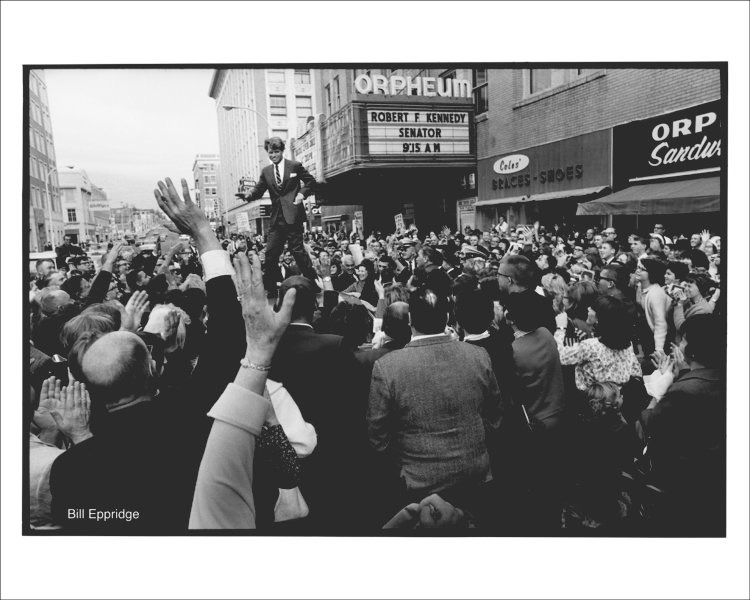
But what it is notable is that all but a few of the widely distributed Trump CCPO’s from the 2016 campaign show him within and before crowds.
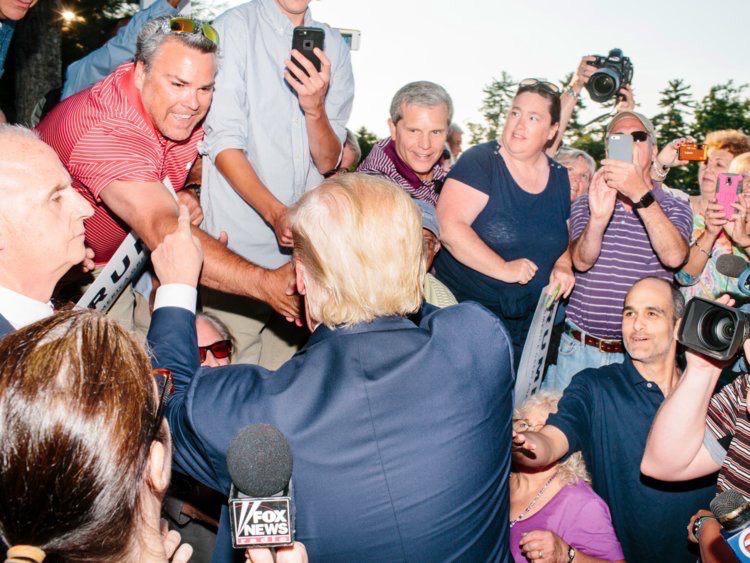
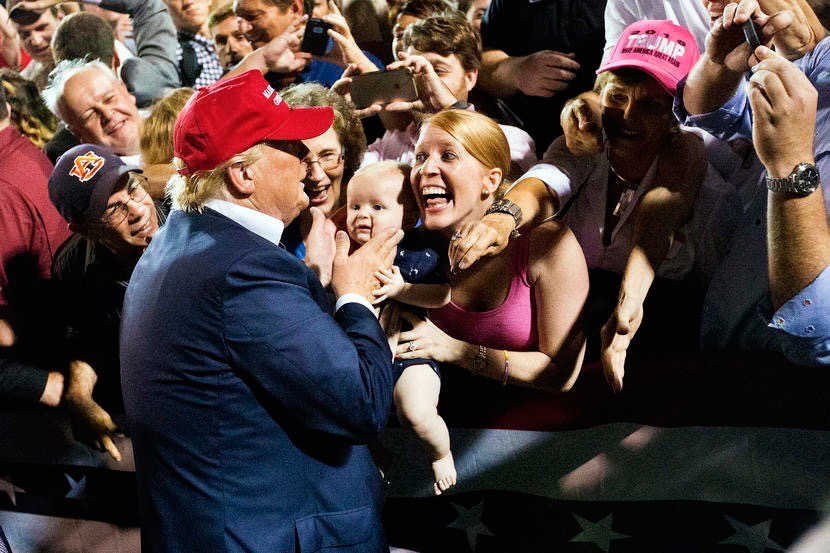
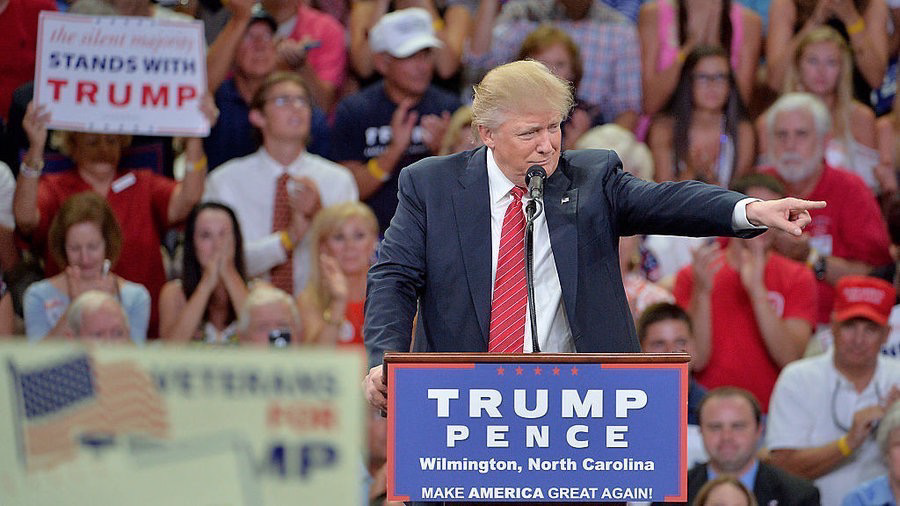
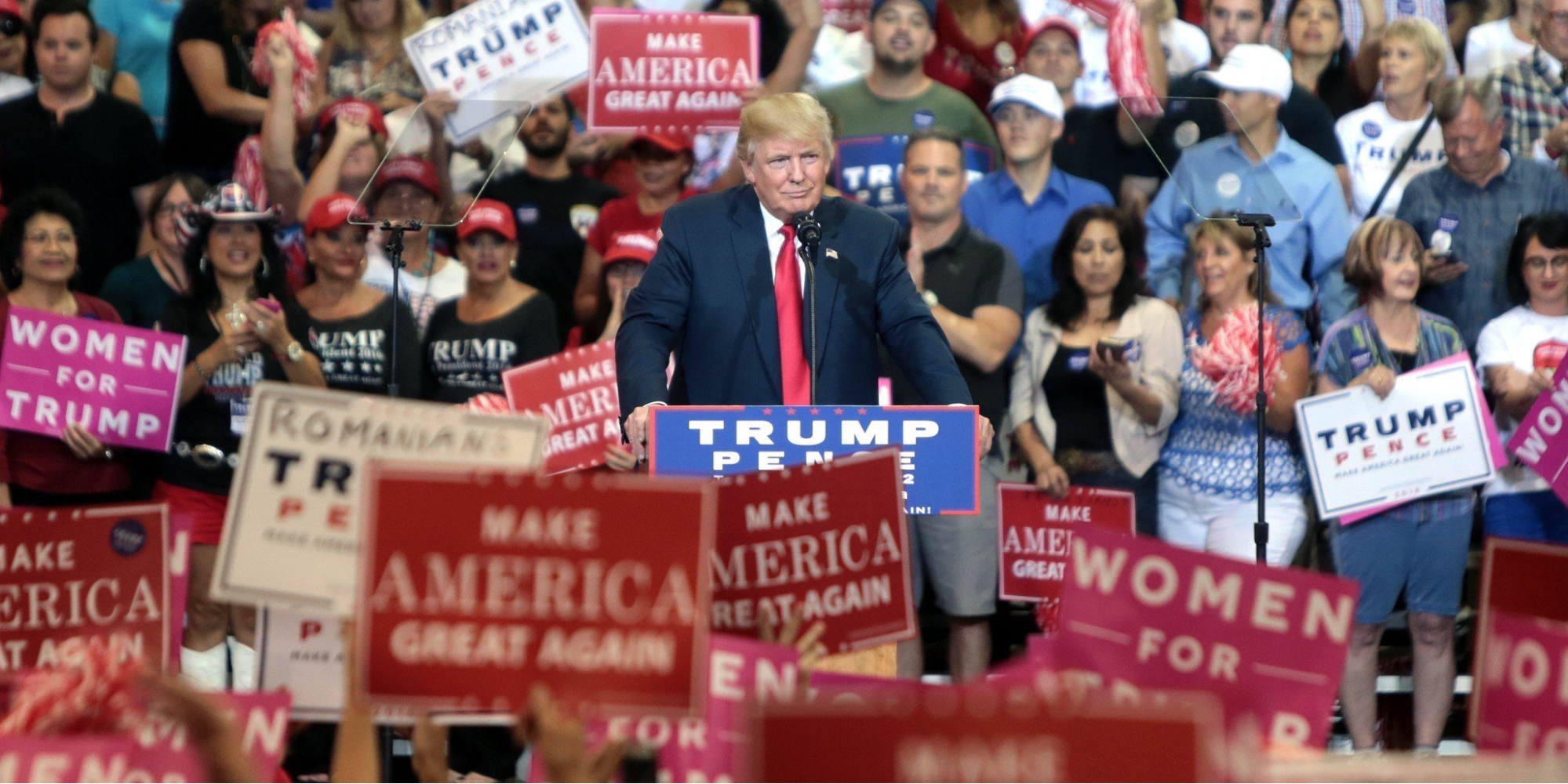
In comparison to other major candidates (Hillary Clinton, Bernie Sanders, Ted Cruz, for example) Trump’s CCPO imagify celebrity as much, if not more, than presidential capability, but a form of celebrity which is seen variously as a cipher for presidential capability, or a more preferable replacement for it. As such, the luster of other CCPO norms emphasizing service, civic-mindedness, or even-handedness begin to fade; those norms come to represent a form of politicking regarded as dishonest, overwrought, ineffective or old fashioned (a sentiment not without a shade of truth).
The uncanniness of the Zuckerbergian CCPOs may not be entirely due to their subject, then. And may be a bellwether after all. Except they don’t announce a man’s run for president, but the waxing awkwardness of the traditionally constructed CCPO. The hopeful prediction of a Zuck Run, insofar as that hopefulness existed, maybe didn’t concern Zuck specifically, so much as the appearance of a potential political actor with familiar (more traditional) tendencies, and one which fits more neatly into some shared sense of what it has meant to advertise a desire to serve.
It is also within this particular moment that a Tech CEO’s run for President ”makes sense”. The low level fervor around Mark Zuckerberg’s performance of political norms may speak to an anxiety, a thankfulness, or both, that this is what politics has become, or is becoming: a second career for famed businessmen.
This anxiety / thankfulness / thanxiety over the growing comfort executives feel engaging in national politics looms one way when the executives are Donald Trump, Howard Schultz, and to a lesser degree Mitt Romney. But it casts a different shadow, methinks, when its subject is CEO of Facebook, in particular. To whit: we must confront Mark Zuckerberg’s considerable political impact absent any direct involvement in politics as such.
This is what is meant, saying that Mark already holds the position for which he would run - and it is hard to imagine another more powerful. Nick Bilton wrote for Vanity Fair "Zuckerberg is one of the few people for whom becoming president of the United States might be a step down.”[10] Bilton jokes (I think) about Zuck being, in truth, the leader of the free world already. It would be understood if one’s reflex to read such a statement as hyperbolic triggers more slowly than is ideal. It is, after all, the unexpected outcome of the 2016 election, and the unexpected role Facebook played in that election, that inspired The Tour in the first place. Zuck is, like it or not, a political actor, even through inaction, given the impact of the technology he skippers.
Is it possible those questionmarking the so called “challenge” and its photos with the word “president” recognize the man as a Highly Politically Effective Non-statesman, and see in said photos something of a cadence: the comfortable, solid conclusion to a complex, multilayered journey that concludes in an oval office. But Mark doesn’t need to run for president to be politically influential, even singularly so.
The Cassandras of Tech warned of the grey shirt wearing wunderkind’s [technology’s] blindsiding influence, but it wasn't until photo documentation–Mark Looking at Things–that many of us could muster some imagination, and consider what that might mean. Perhaps the comfortable fiction of presidential aspirations is a salve for the truth of his political impact, which possesses something of a sting.
